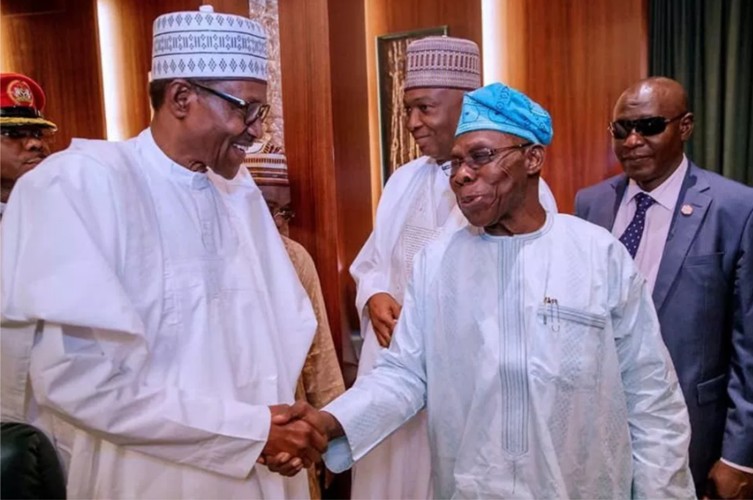Former President Olusegun Obasanjo has thrown his weight behind the closure of Nigeria’s borders, describing Nigeria’s west coast neighbour, Benin Republic, as notorious.
He said Benin’s notoriety was not new as Nigeria had for long been enduring the practice which undermined its economic well being. “It happened when I was President of Nigeria. I called the then Benin President, Nicephore Dieudonne Soglo, to let us meet at any of our border posts over the issue.
“We eventually met at Badagry (in Nigeria), where we agreed that Nigerian Customs would be stationed in Benin.
“They (the Nigerian Customs) are still there. We don’t have issues with goods manufactured in Benin — they are welcome.
“But as long as Benin allow dumping of goods, there will always be a problem with Nigeria,” Obasanjo said.
Obasanjo, a critic of the Buhari administration, had a media briefing on the margins of Policy Dialogue of African Business Associations on Implementing the African Continental Free Trade Area (AfCFTA) Agreements in Addis Ababa on Tuesday.
The two-day policy dialogue was co-organized by the African Union (AU), the African Development Bank (AfDB) and the African Export-Import Bank (AFREXIMBANK).
He insisted that Benin must change its ways for a harmonious bilateral relationship between the two countries. Obasanjo, who is the chair of the CoDA Board of Directors, said the Economic Community of West African States (ECOWAS) was not created to allow one country to turn itself to a dumping ground.
On AfCFTA, Obasanjo said that the execution of the agreements was crucial to its success and sustainability.
He explained: “The intense support AfCFTA has received from various member states is a clear indication of its importance.
“CoDA is highly engaged in seeking success of AfCFTA and other multilateral agreements. CoDA work is informed and guided by the notion that no one has a monopoly of ideas.”
Obasanjo called for actions beyond mere rhetorics, noting with fragmented 55 markets, Africa would remain a small player in the global marketplace.



